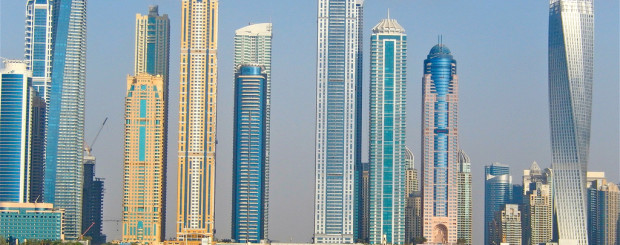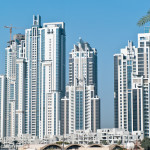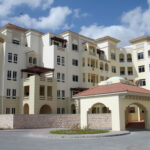How to Move to Dubai from Australia
Australia is a wonderful country and is fast becoming a popular destination for expats, particularly from the UK and Asia. However, many Australians choose Dubai as their home for several reasons. With Dubai’s metropolitan culture and central location, Australian expats and their children are exposed to different cultures, people and ways of life that they may never get to experience in their own country. The diversity offers a remarkable opportunity to develop so many skills on many different levels to broaden one’s horizons.
Although the UAE and Dubai were initially known for their oil reserves that kick-started the economy, twenty years of diversification have propelled the country’s economy into one of the fastest growing economies in the world, leading to excellent career opportunities in a number of sectors.
Whatever the reasons for moving to Dubai, we have put together some essential information to help make the transition smoother during the move.
6 Fast facts about Dubai
-
The currency in Dubai is the dirham, commonly denoted as AED or Dh.
-
Foreign expats comprise close to 90% of the UAE’s population and only 10% are local Emiratis.
-
Dubai’s work week is typically from Sunday to Thursday. Most companies are closed on Fridays and Saturdays which constitutes the weekend here in Dubai.
-
The UAE is a tax-free country; personal income is not taxed, which means you get to keep everything you earn. This is a major attraction for people looking to earn and save some money when working in Dubai.
-
Islam is the official religion of the UAE and it affects every aspect of life here including social customs, business protocols and way of life in general. Although the Dubai government has interpreted Sharia law more liberally than most other emirates in the UAE, it is wise to remember that Dubai is a Muslim city and the local culture and norms must be respected.
-
Dubai is behind Australia in terms of time and the time difference will depend on which part of Australia you are from.
Visa Requirements
Australians do not need a pre-approved visa to visit the UAE if their stay in the country is 30 days or less. However, if they plan on living and working in the UAE, a visa is required; the type of visa required will depend on the purpose of stay in Dubai. Once you have determined the type of visa required, the relevant forms and all supporting documentation should be submitted to the Australian Visa Application Center (AVAC).
Make sure to apply early and arrive in time for your appointment. An appointment is necessary for all applications. The decision letter is typically emailed to the address provided on the visa application form so ensure that the email address is accurate; if a hard copy is required this should be mentioned at the time of the application at the AVAC.
Travel arrangements should be made only after the visa approval letter has been received. For detailed information on the application process, visit the VFS website.
Weather and the outdoors
For many Australians who love and enjoy the outdoors almost year round back in their own country, it is advisable to understand limitations in outdoor activity with respect to the weather. Dubai winters are wonderfully pleasant and usually mild, although there have been a few odd years when temperatures have been uncharacteristically low. However, winter does not last long here; previously residents could look forward to about six months of mild weather, but with global warming, winter is more realistically close to three months with the coolest weather expected in December, January and February. When it rains, roads are flooded and driving anywhere can be a nightmare as the city is ill equipped to deal with heavy rains.
From May to October (it actually starts to heat up as early as April) it is incredibly hot with temperatures that can exceed 50⁰C; even the most enthusiastic outdoor person will prefer to remain in the comfort of the air conditioner during these months. Malls are your best form of entertainment during these hot, humid months.
Taxes
Australians living in Dubai cannot afford to forget about taxes even though they are living in a tax-free economy in Dubai. Australian expats earning any form of recurring income back home, whether from rental property or an investment portfolio, will need to file their tax returns every year even if they do have non-resident status. Filing taxes can quickly become complicated with income earned both in Dubai as well as back home so it is advisable to consult a professional who is well versed with international tax laws.
Furthermore, although personal income is not taxed in Dubai, there are many forms of tax levied by the government. Salik or road tax is charged every time you use a toll road and the government charged an annual tax of 0.5% on the purchase price of a home, if bought. Entertainment is taxed; there is usually a 5% tax on concert tickets and a service tax of 10% on food and alcohol at restaurants. Alcohol is heavily taxed with a 30% tax on alcohol purchased for home consumption (which requires a license by law).
Accomodation
Dubai has a plethora of housing to choose from for both rental as well as purchase; however think carefully before you commit to an investment in the Dubai real estate market as residents are not granted citizenship and have to leave the country when they reach retirement age. Rents for apartments and villas fluctuate wildly and there is very little rent control. Landlords are often unscrupulous in evicting tenants and raising rents to alarming rates. Although renters can take their grievances to RERA, there is no safeguard to temper the constantly rising prices of property in Dubai.
Safety
Dubai is a very safe city with a police force that is generally considered fair and courteous. However, Dubai is an Islamic state and the law is very strict about certain things that may be considered innocuous in other parts of the world. Public gestures of affection such as kissing are unacceptable as are rude gestures or disruptive behavior which can quickly land you in jail. Bouncing a check is also a criminal offense and the plaintiff has three years from the date of the bounced check to file a complaint with the police.
Cost of Living
Although there is no definitive, quantitative answer to the cost of living in Dubai, this largely depends on lifestyle choices. Rent and education for kids eats up a large chunk of earnings. With other expenses such as grocery, utilities etc. kicking in it is getting harder to save money in Dubai. There are many places to dine and eat out and you can do so without blowing your entire budget, but the best way to save money and be healthy is to cook at home for most of the week and treat yourself to a night out once a week.








